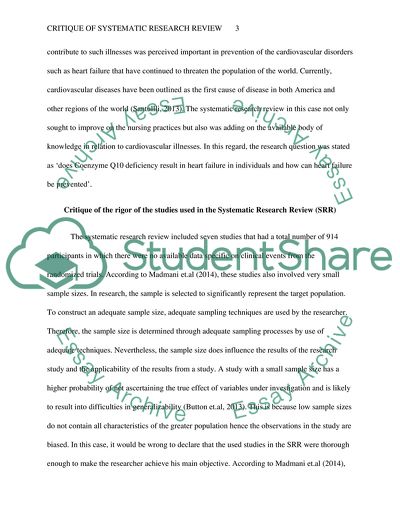Cite this document
(Critique of Systematic Research Review Paper Example | Topics and Well Written Essays - 1250 words, n.d.)
Critique of Systematic Research Review Paper Example | Topics and Well Written Essays - 1250 words. https://studentshare.org/medical-science/1879191-the-safety-and-efficiency-of-the-coenzyme-q10-in-heart-failure
Critique of Systematic Research Review Paper Example | Topics and Well Written Essays - 1250 words. https://studentshare.org/medical-science/1879191-the-safety-and-efficiency-of-the-coenzyme-q10-in-heart-failure
(Critique of Systematic Research Review Paper Example | Topics and Well Written Essays - 1250 Words)
Critique of Systematic Research Review Paper Example | Topics and Well Written Essays - 1250 Words. https://studentshare.org/medical-science/1879191-the-safety-and-efficiency-of-the-coenzyme-q10-in-heart-failure.
Critique of Systematic Research Review Paper Example | Topics and Well Written Essays - 1250 Words. https://studentshare.org/medical-science/1879191-the-safety-and-efficiency-of-the-coenzyme-q10-in-heart-failure.
“Critique of Systematic Research Review Paper Example | Topics and Well Written Essays - 1250 Words”. https://studentshare.org/medical-science/1879191-the-safety-and-efficiency-of-the-coenzyme-q10-in-heart-failure.


